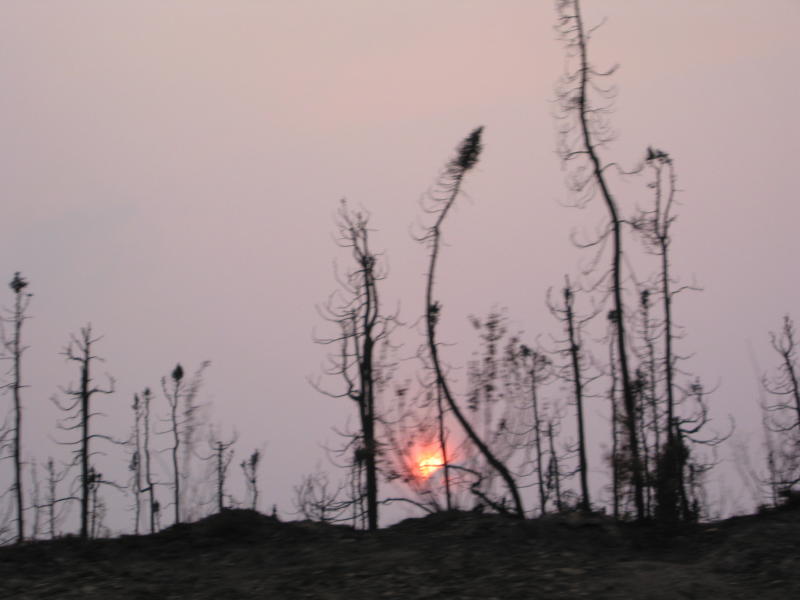ScienceDaily (Feb. 20, 2011) — Alaskan forests used to be important players in Mother Nature’s game plan for regulating carbon dioxide levels in the air. It’s elementary earth science: Trees take up carbon dioxide and give off oxygen.
But now, American and Canadian researchers report that climate change is causing wildfires to burn larger swaths of Alaskan trees and to char the groundcover more severely, turning the black spruce forests of Alaska from repositories of carbon to generators of it. And the more carbon dioxide they release, the greater impact that may have in turn on future climate change.
“Since the proliferation of black spruce, Alaskan soils have acted as huge carbon sinks,” says Evan Kane, a research assistant professor in Michigan Technological University’s School of Forest Resources and Environmental Science. “But with more frequent and more extensive burning in recent decades, these forests now lose more carbon in any fire event than they have historically been able to take up between fires.”
http://www.sciencedaily.com/releases/2011/02/110218221921.htm



O/T but Estonia need more icebreakers as they clearly don’t believe the current ice build up in the Baltic is a one off.
Meanwhile the EU funded climate change experts are say ice should be receding.
The problem is being seen as ongoing, and long term-investment is considered necessary to resolve it. In the short-term, the ice is expected to freeze over even more than 1987. But, what is so much fun here is that EU funded researchers, with €22 million of research grants, are claiming that the sea is threatened by “climate change”.
“Professor Aarno Kotilainen at the Geological Survey of Finland says: “Some estimates suggest that climate change in the Baltic Sea area causes sea surface temperatures to rise, increases winds and shortens the ice-cover season”. Perhaps he should be looking out the window a little more often.”
As Richard North says, “That makes spending the €22 million on climate change research a real shame. It would have been a useful down-payment on that new icebreaker. But then it is only the meteorologists who are warning that ice coverage on the Baltic could expand further in the coming days, possibly setting a new record. What do they know? The proper, EU scientists are working from computer models, and they beat real evidence any day. There is no ice … move along please.”
Last sentence of the story…..”The new forest types likely to establish after repeated severe fires act as a much weaker carbon sink than black spruce forests.”
Uhhmm…..I don’t think that is correct. (I’d have to find some old references, all of my old books and computer references were lost in a house fire 5 years ago.)
But, as I recall spruce trees are intermediate in the forest evolution. And as I recall they are typically replaced by larger and harder wood trees such as oak and walnut….maybe ash before that. But again, I’m relying on memory. But I seem to also recall it being posited that the larger harder trees act as a much greater CO2 sink. The burnt trees enrich the soil of nutrients necessary for the larger trees to grow. Now, that doesn’t mean this will happen in Alaska, because of the environment there. But forest fires are a necessary occurrence for ecological growth and to avoid entropy.